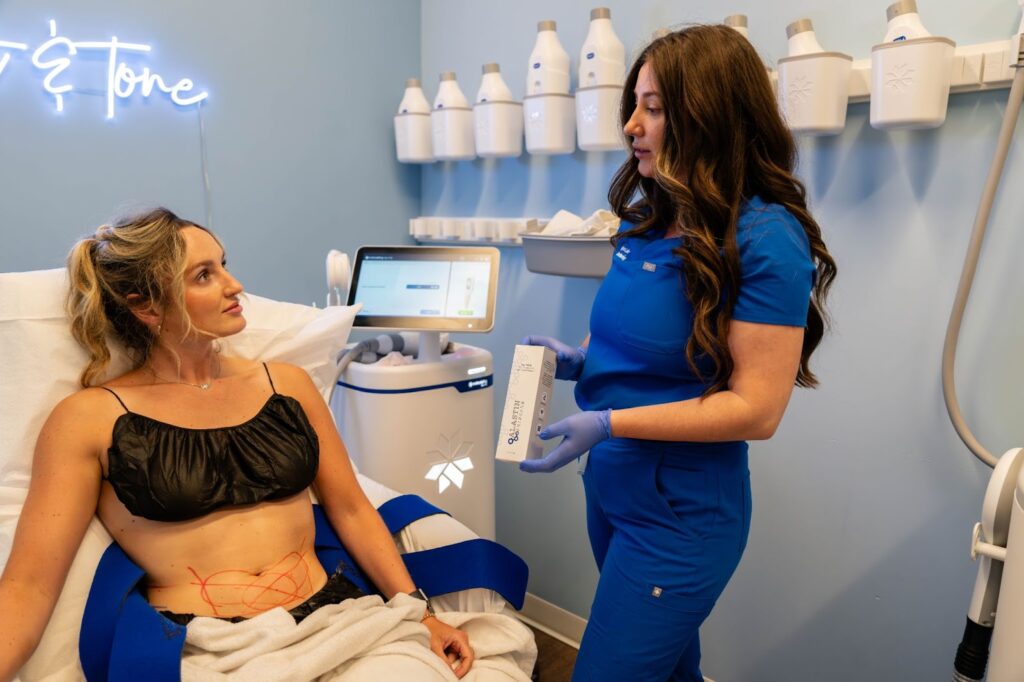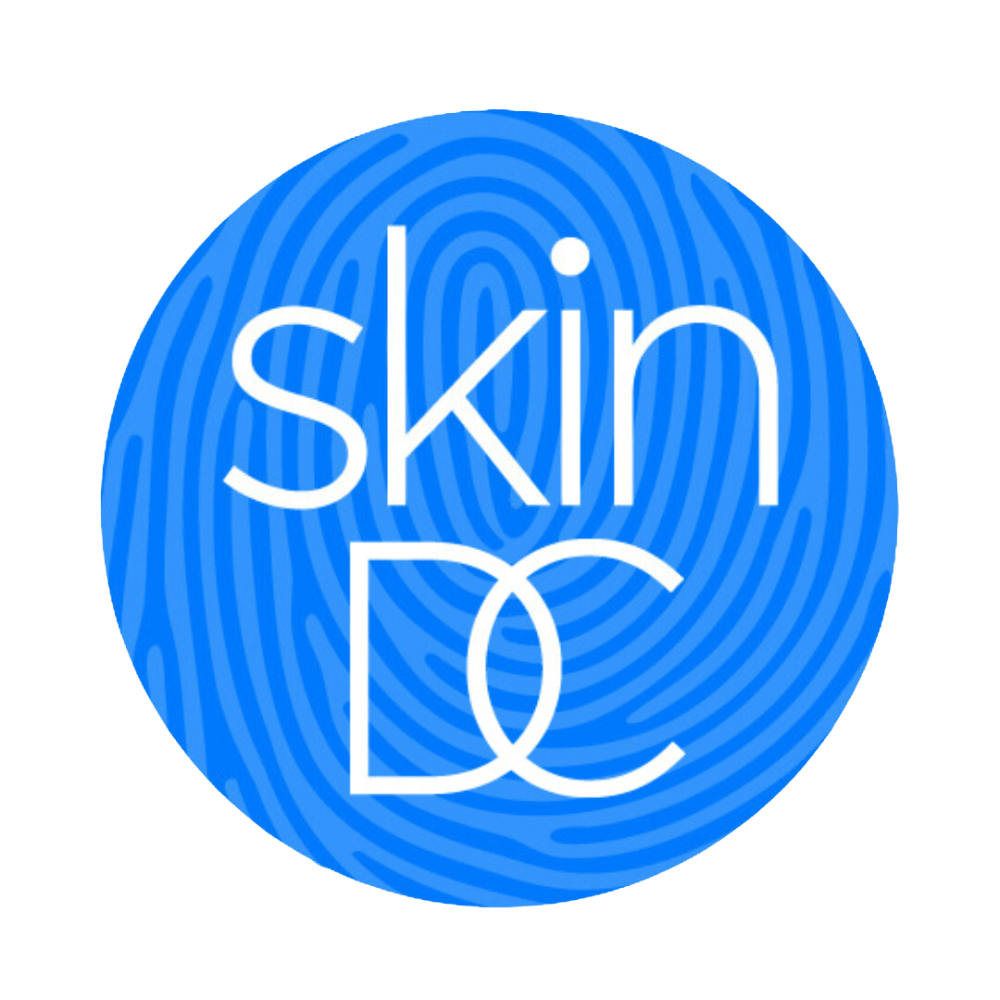Caring for your skin requires a little more than anti-aging and acne treatments and sunscreen. Your skin should get regular checkups with a dermatologist to protect you from minor and major issues. Want to know what to expect during a dermatologist examination at SkinDC and what makes it so important? Keep reading!
Why Dermatologist Skin Exams Are Important
Dermatology exams are not a ploy to collect as much co-pay money as possible. They’re a crucial part of everyone’s healthcare, especially for those with a higher risk of skin cancers like melanoma, basal cell carcinoma, and squamous cell carcinoma.
Many skin conditions, including skin cancer, can be sneaky, and their symptoms are often brushed off as an inconvenience rather than a sign of a problem. For most conditions, this can just lead to a worsening of the treatable symptoms or prolong your experience with a curable issue.
But when it comes to more serious skin issues, the stakes are much higher. For example, skin cancer, if left untreated, can be life-threatening. By examining your skin from head to toe, dermatologists can identify suspicious moles or spots and use the ABCDE rule—Asymmetry, Border, Color, Diameter, and Evolving—to assess the likelihood of cancer. Early detection improves your chances of a full recovery and allows for less invasive treatments. Scheduling regular skin exams with a dermatologist is one of the most effective ways to protect yourself from skin cancer.
We don’t say this to scare you into being paranoid about your skin or fearmonger you into an appointment. We want you to understand the importance of preventable steps like dermatologist exams and be able to make informed decisions about your health in a timely manner.
What To Expect During Your Exam
When you visit a dermatologist for a skin exam, knowing what to expect can help ease any anxiety you might have. Let’s break it down:
- The Discussion
- Your appointment will typically begin with a brief discussion about your medical history and any skin concerns you have. This is a great time to mention any changes you’ve noticed, like new or abnormal moles, a growth, itchiness, or areas that don’t heal well, and show your dermatologist any photos you’ve been taking to track concerns. We suggest conducting a self-examination the day before and making notes if anything you see that you’d like to make sure is noted.
- Your skincare team will also ask you if your family has a history of skin cancer or other skin conditions. If you’re not sure, check in with your family before your appointment so that you can accurately answer most or all of the questions about your family. While it might not seem critical, knowing your family’s history can be key for preventative care and diagnosis.
- The Exam
- You will have to undress and put on a robe so your SkinDC Dermatology provider can easily see what they need to. Your underwear will remain on unless you have a concern about your genitalia you want looked at. If you have concerns or questions about this, please contact us for more information prior to your appointment.
- Your dermatologist will examine your skin from head to toe, including your scalp, nails, between the toes, back, arms, et cetera. They’ll look for any unusual moles, spots, skin changes, or symptoms like dry skin, itchy skin, or scaly skin that could indicate skin cancer or other conditions such as acne, eczema, psoriasis, and dermatitis.
- They might use a dermatoscope for a closer look or photograph a spot they want to monitor and document. If your provider sees anything suspicious, they’ll take a skin biopsy and send it off for testing.
- Throughout the process, your doctor will keep you informed on what they’re doing and why so you can feel at ease and confident. If you have any questions or feel uncertain, don’t hesitate to speak up! We’re passionate about patient education, and your comfort is a priority, so we’d be happy to elaborate whenever necessary.
- After The Exam
- You and your provider will discuss the testing they recommend and why.
- We might schedule you for a follow-up so we can monitor certain areas or give you test results.
- If we see an infection or skin condition we can diagnose without testing, we’ll give care instructions and prescribe medications if needed.
- You will have another chance to ask questions.
Before your skin exam, you should remove all nail polish and makeup. You should also wear your hair down (no buns, braids, ponytails, et cetera), and don’t use any tanning products for at least one to two weeks prior to your appointment. Any other preparation instructions will be specified when you book your appointment.

Questions To Ask Your Dermatologist
Don’t know what questions to ask? Don’t worry! Below are some examples of questions you might need to ask.
- How often should I get a professional skin exam?
- Are there any spots I should be monitoring in between appointments? What should I look for?
- How do I conduct a self-examination, and how often should I do it?
- Could the products in my skincare routine be causing these issues?
- Does my family’s history increase my risk of [x, y, z]? If yes, what can I do to minimize the risks?
- Are there any lifestyle changes I should make to protect or improve my skin’s health?
- When can I expect results, and where can I find them?
- What number can I call if I think of more questions or symptoms?
- Can I speak to a member of your insurance department to see what my plan covers?
- Do I need to schedule a separate appointment to discuss my cosmetic concerns?
If you have additional questions, write a list in the notes app on your phone or on paper so they’re all in one place. This simple task can make it easier to write down answers and track what you have and haven’t asked during your appointment. A written record can ensure your peace of mind and prevent you from needing to call after your appointment when you have other things to do.

Stay Healthy With SkinDC Dermatology!
Dermatology checkups are more than just helping you feel confident posting a video or image without a filter. They’re essential to your health and quality of life. For more information or to schedule an exam, please contact SkinDC in Arlington, VA!

